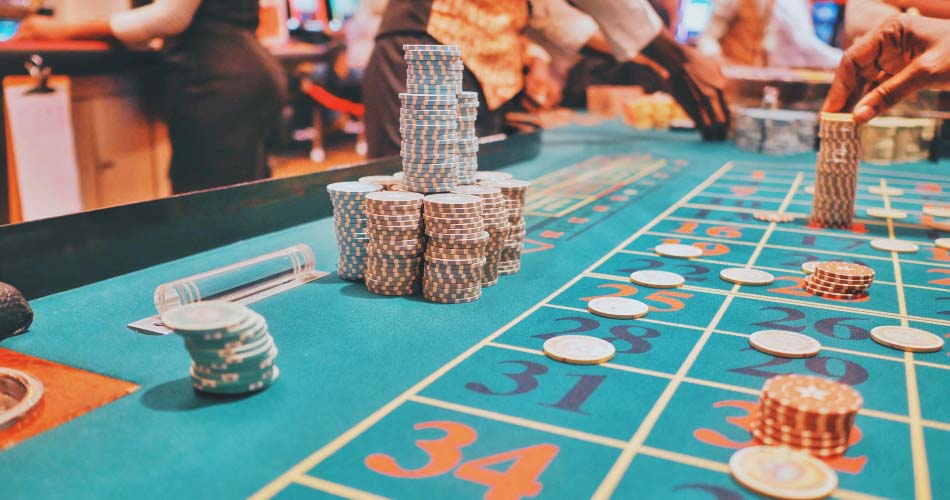Casinos, Arcades, And Bingo Halls To Reopen In England On May 17

Casinos, arcades, and bingo halls in England have all been given the green light to reopen next week.
Yesterday (May 10), Prime Minister Boris Johnson announced that England will be entering the next stage of his lockdown exit roadmap on May 17th. Under the next stage, a series of restrictions will be relaxed, including allowing up to 30 people to gather outdoors, allowing six people or two households to gather indoors, up to 30 people at weddings, and an uncapped number of people at funerals.
In addition, casino, bingo halls, and arcades will be allowed to open, along with cinemas, theatres, concert halls, museums, and more. Indoor hospitality will be allowed, such as restaurants, bars, cafes, hotels, and people will be allowed to attend indoor and outdoor events too, although there will be restrictions on the number of people allowed.
Boris Johnson also announced that social distancing measures with close friends and family will be based on personal responsibility and judgement rather than on government rules. However, people have been asked to remain cautious, and social distancing measures in hospitality, business, medical, and other settings will remain.
As reported by the BBC, it’s hoped that from June 21st, all legal limits on social distancing will be removed and nightclubs will be allowed to reopen in England, though this is subject to change depending on the number of Covid-19 infections across the country.
The news comes as both Wales and Scotland look to easing restrictions within the next week too. It’s thought that Wales will green light indoor hospitality and allow cinemas, theatres, and museums to reopen. Meanwhile, Scotland may allow for more indoor socialisation in private and public places, the return of outdoor contact sport, and the reopening of cinemas, arcades, and bingo halls too.
Charity GamCare Warns Of Underage Gambling Harm
Also this week, charity GamCare, which operates the National Gambling Helpline, has warned of the dangers of underage gambling as 71.5% of calls from under-18s to the National Gambling Helpline are from those experiencing gambling-related harm.
GamCare revealed additional user data from its support services, confirming that 353 young people called the helpline or used GamCare’s services in the last three years. What’s more, GamCare’s data found that 7 in 10 of those 353 people were considered to have gambling issues themselves while 8.5% were considered “at-risk” and a further 20% called over concerns about family or friends.
Highlighting a lack of awareness among young people over how to access gambling support services, GamCare revealed that of the young people that gamble, 77% of them do so online, and it noted that a majority of young people gamble through eSports betting and social gaming, as well as in video games through in-app purchases, skin betting, and loot boxes too.
To combat the dangers of underage gambling, GamCare continues to promote its BigDeal website, a hub for young people where they can easily find information, advice and support regarding gambling and harmful behaviour. The website also provides support to parents and training to those who work with young people, including teachers and social and youth workers.
Anna Hemmings, the CEO of GamCare, said in a statement: “Since lockdown, we’ve not only heard stories from our helpline that reveal young people are increasingly experiencing more parental gambling, but there is also rising concern for potential harm to young people who gamble themselves.
“It’s been an extremely difficult year for young people, with many using the internet and social media not only to be in touch with friends, but also as a form of escapism. This makes it harder for parents to tell when their child might be displaying unhealthy behaviours, as often the symptoms, such as being withdrawn, can be confused with other issues and challenges teenagers face in this difficult period of their lives. That’s why we hope BigDeal will be a resource that speaks to young people in plain terms on the core issues related to gambling, the harms they could encounter, plus how they can get further support from our helpline.”
GamCare And Samaritans Partner For Suicide Awareness And Prevention Training
The above news comes days after GamCare partnered with suicide prevention charity Samaritans to develop and publish training materials for gambling businesses to raise awareness of the risk of gambling-related suicide and to provide gambling staff with the skills and confidence to support customers who are at risk.
According to GamCare, gambling-related harm is a risk factor for suicide, with the charity reporting that 11% of gamblers that contacted the National Gambling Helpline between 2019 and 2020 told GamCare that they had experienced suicidal thoughts. As a result, GamCare and Samaritans have partnered to help tackle the issue by combining their knowledge in treating gambling-related harm and in suicide prevention to identify which changes are required within the gambling industry to prevent gambling-related suicide and to provide new guidelines and training to businesses to help them identify those at risk.
As part of the collaboration, GamCare will offer e-learning free of charge as well as face to face training for all staff within the gambling industry to promote awareness of gambling-related suicide. GamCare hopes that the practices will enable staff to prevent gambling-related suicide and identify and support vulnerable customers.
Speaking about the partnership, Anna Hemmings said: “Pairing our experience and expertise of training the gambling industry and treating gambling harms with Samaritans’ expertise in suicide prevention will make a real difference to those most at risk. With the isolation of lockdown exacerbating gambling harms for some people, it is more important than ever that our support services unite to help gambling businesses identify and support their customers at risk of harm. With proper training providing new skills and expertise, the industry and its staff can play a vital role in identifying vulnerable customers at risk of harm.”